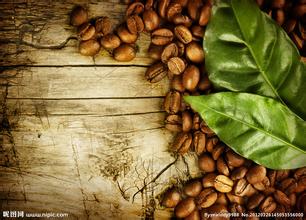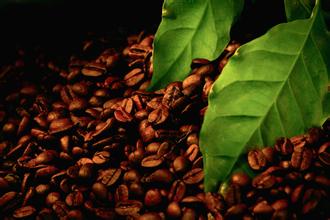Sour, bitter and sweet Salvadoran coffee taste planting environment Mercedes Manor
In April 1991, an agreement was reached to amend the Constitution. At the end of July, guerrillas kidnapped the leaders of the ruling party, and the top military leaders of both sides held informal preparatory meetings brokered by the United Nations. At the end of September and the end of the year, the Secretary-General of the United Nations twice summoned the parties to the conflict to the United Nations headquarters and reached the "New York Agreement No. 1" and the "New York minutes" respectively, preparing the conditions for the signing of the El Salvador peace agreement on January 16, 1992. After the agreement was signed, the United Nations Security Council sent an observer mission to El Salvador to ensure the effective implementation of the agreement. After nearly a year of efforts, the reduction of government forces and the demobilization of guerrillas have been completed. According to the agreement between the United Nations and the warring parties, the demobilization of guerrillas will be completed by the end of 1992, and the cleansing of government forces will be finally completed in the first few months of 1993. The civil war in El Salvador finally died out at the end of 1992. After the end of the 12-year civil war in 1983, the guerrillas fought a war of political, economic and military attrition, took control of the rural areas in the east and north, which accounted for about 1% of the country's area, and received support and assistance from Cuba, Nicaragua and other countries. Government forces are growing with the support of the United States. Duarte formed a coalition government of the Christian Democratic Party and the Democratic Action Party in June 1984 and held two rounds of negotiations with the guerrillas in October and November. No agreement was reached except for the Christmas cease-fire. The guerrilla tactics changed from ambush sabotage to occupation of villages and towns, which determined the situation of the seesaw battle. In October 1987, under the direct promotion of the Central American Peace Agreement, after two rounds of talks, the two sides agreed to achieve the principle of a domestic ceasefire through political dialogue and established a dialogue committee, but no substantive agreement was reached. The armed conflict continued unabated until 1989. When the Nationalist Republican Alliance won the general election in June 1989, President Cristiani was determined to push forward the peace talks in the face of changes in the international situation and a stalemate between domestic government forces and guerrillas. In October, the two sides held talks and agreed to achieve a cease-fire and peace through political consultation. In November, when the guerrillas were attacked by the union headquarters, 10 leaders were killed and launched the largest offensive in history, liberating 60,000 square kilometers of land and increasing the number to 10,000. In November, six Spanish missionaries at the Central American University were killed by right-wing soldiers. At the end of the year, the Farabundo Marti National Liberation Front headquarters refused to accept the severance arrangements of the sixth Central American Summit, and the peace talks were once again in crisis. In early 1990, the United Nations sent a representative of the Secretary-General to intervene in the process of peace talks in El Salvador, and the two sides signed the Human Rights Agreement in September.
Salvadoran coffee ranks side by side with Mexico and Guatemala as the producers of Asa and Merdo, and is fighting for the top one or two places in China and the United States with other countries. The highlands of origin are large coffee beans of all sizes, which are fragrant and mild in taste. Like Guatemala and Costa Rica, coffee in El Salvador is graded according to altitude. The higher the altitude, the better the coffee. It is divided into three grades according to elevation: SHB (strictlyhighgrown) = highlands, HEC (highgrowncentral) = mid-highlands, and CS (centralstandard) = lowlands. The best brand is Pipil, which is what the Aztec-Mayan (Aztec-Mayan) called coffee, which has been recognized by the American Organic Certification Society (OrganicCertifiedlnstituteofAmerica).
"Salvadoran coffee beans | w.kaf.name Salvadoran coffee refers to the coffee bean text teacher from El Salvador, a small country in South America."
Salvadoran coffee
El Salvador (ElSalvador) is one of the small countries in Central America, where coffee is light, fragrant, pure, slightly sour and characterized by excellent balance of flavor. It is a specialty of Central America. With sour, bitter, sweet and other taste characteristics, the best baking degree is moderate, deep.
The origin of coffee
In the early 1990s, guerrilla warfare greatly damaged the country's national economy, reducing coffee production from 3.5 million bags in the early 1970s to 2.5 million bags in 1990-1991. The eastern part of the country was most affected by guerrilla warfare, and many farmers and workers were forced to leave the manor. The shortage of funds has led to a sharp drop in coffee production, from 1200 kg per hectare in the past to less than 900kg per hectare today.
In addition, the government imposed an additional 15% tariff on exported coffee in 1986, that is, an additional 15% in addition to the existing 30% tax. Taxes, together with unfavorable exchange rates, have greatly reduced the export of coffee and the quality of coffee.
The government finally realized the great role of coffee in the national economy, such as solving employment, earning foreign exchange and developing agricultural production, so it privatized some coffee export industries in 1990, hoping to increase the income rate of coffee in the export market.
Today, this coffee accounts for 40% of the country's exports. The best quality coffee is exported from January to March, and 35% of the extra hard beans are exported to Germany.

Important Notice :
前街咖啡 FrontStreet Coffee has moved to new addredd:
FrontStreet Coffee Address: 315,Donghua East Road,GuangZhou
Tel:020 38364473
- Prev

Nicaragua Coffee Manor planting Environment Los Congo Manor Coffee Flavor
The Nicaraguan Canal development project, which was invested and developed by an enterprise in Hong Kong, China, has not been started since it was officially launched in December last year. The British Environmental Resources Management Company was previously commissioned to conduct a field assessment of the canal project to analyze the potential impact of the canal project on the environment, society and other aspects. The details of the assessment report have not yet been made public, but they are based on the Nicaraguan Canal.
- Next

Fragrant and delicious Nicaraguan Coffee Manor Tianyi Manor Flavor and Taste Coffee introduction
On 18 August 1986, the Constitution of Nicaragua was adopted by the National Assembly and entered into force in January 1987. The Constitution was amended three times in February 1995, January 2000 and December 2004. According to the Constitution, Nepal is an independent, free, autonomous, unified and indivisible country; the central authority of the state is composed of the President, the National Assembly, the Supreme Court and the Supreme Election Commission; and the President and members are elected.
Related
- Does Rose Summer choose Blue, Green or Red? Detailed explanation of Rose Summer Coffee plots and Classification in Panamanian Jade Manor
- What is the difference between the origin, producing area, processing plant, cooperative and manor of coffee beans?
- How fine does the espresso powder fit? how to grind the espresso?
- Sca coffee roasting degree color card coffee roasting degree 8 roasting color values what do you mean?
- The practice of lattes: how to make lattes at home
- Introduction to Indonesian Fine Coffee beans-- Java Coffee producing area of Indonesian Arabica Coffee
- How much will the flavor of light and medium roasted rose summer be expressed? What baking level is rose summer suitable for?
- Introduction to the characteristics of washing, sun-drying or wet-planing coffee commonly used in Mantenin, Indonesia
- Price characteristics of Arabica Coffee Bean Starbucks introduction to Manning Coffee Bean Taste producing area Variety Manor
- What is the authentic Yega flavor? What are the flavor characteristics of the really excellent Yejasuffi coffee beans?

